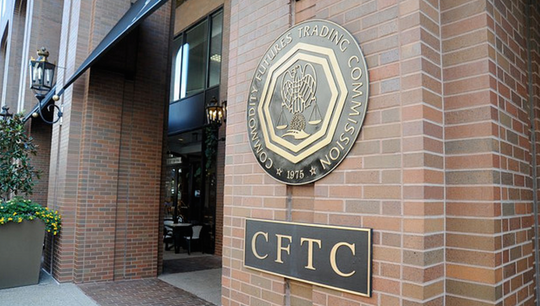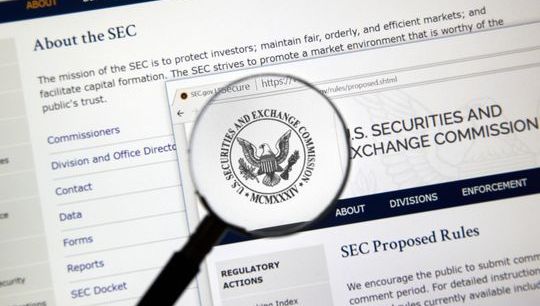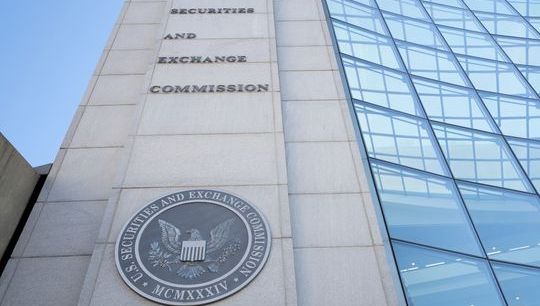SEC proposes extensive private fund regulation
By Justin Kam, Sudrania Fund Services
Published: 12 April 2022
On February 9, 2022, the U.S. Securities and Exchange Commission (the “SEC”) issued Release No. IA-5955, which proposed rules (“Proposed Rules”) under the Investment Advisers Act of 1940 (the “Advisers Act”). The Proposed Rules, if adopted, could very well change the regulatory landscape for private fund advisers and may require private fund advisers to revamp their operations, trading, compliance and reporting functions.
Private funds are issuers that would be considered an investment company under the Investment Company Act of 1940, as amended (the “Investment Company Act”), but for section 3(c)(1) or 3(c)(7) of that Investment Company Act.
The SEC’s Chair, Gary Gensler, stated that the Proposed Rules would increase transparency and provide comparability to private fund investors and would prohibit private fund advisers from engaging in a number of activities that are contrary to the public interest and the protection of investors.
Of significance, SEC Commissioner Hester Peirce noted, in opposition to the Proposed Rules that, if the Proposed Rules are enacted, the SEC will devote examination and enforcement resources to ensure that private fund advisers adhere to the new requirements. Although Commissioner Peirce believes that the Proposed Rules are not necessary because investors in private funds are well represented and can fend for themselves, the SEC’s motivation for the Proposed Rules appears to be grounded in its observation that private fund investments are often opaque and that private fund advisers frequently do not provide investors with sufficiently detailed information about private fund investments.
A portion of the Proposed Rules would also apply to private fund advisers that are not registered with the SEC, which would include exempt reporting advisers, state-registered advisers, and other private fund advisers that are not subject to reporting or registration requirements.
Proposed Rules applicable to SEC registered Private Fund Advisers
Quarterly Statement Rule
The Quarterly Statement Rule would require SEC-registered investment advisers to private funds to prepare (or have a third party prepare) quarterly statements that include certain information, in table form, regarding fees, expenses, payments to related persons, and performance for any private fund that the registered investment adviser advises. For “liquid funds”, the quarterly statement must provide annual net total returns since inception, average annual net total returns over prescribed time periods, and quarterly net total returns for the current calendar year. For “illiquid funds,” the statement must provide the gross and net internal rate of return and gross and net multiple of invested capital for the illiquid fund to capture performance from the fund’s inception through the end of the current calendar quarter. The quarterly statements must be distributed to private fund investors within 45 days after each calendar quarter (beginning after a fund’s second calendar quarter of operating results)[1].
Adviser-Led Secondaries Rule
The Adviser-Led Secondaries Rule would require SEC-registered investment advisers to private funds to obtain a fairness opinion, from an independent provider, on the fairness of the price being offered to the fund for assets being sold in connection with any adviser-led secondary transaction and to provide such fairness opinion to fund investors prior to the transaction. In addition, a summary of any material business relationships the adviser or any of its related persons has, or has had within the past two years, with the independent opinion provider must be provided to fund investors. The purpose of this provision to provide a check against an adviser’s conflicts of interest in structuring and leading a transaction from which it may stand to profit at the expense of private fund investors.
An adviser-led secondary transaction is any transaction initiated by the adviser or any of its related persons that offers private fund investors the choice to (1) sell all or a portion of their interests in the private fund; or (2) convert or exchange all or a portion of their interests in the private fund for interests in another vehicle advised by the adviser or any of its related persons.
Books and Records Rule Amendment
In order to facilitate the SEC’s ability to assess advisers’ compliance with the Proposed Rules, the Proposed Rules include amendments to the books and records rule under the Advisers Act, which, if adopted as proposed, would require SEC-registered investment advisers to retain records as follows:
- a copy of any quarterly statement distributed to fund investors pursuant to the proposed Quarterly Statement Rule, as well as a record of each addressee, the date(s) the statement was sent, address(es), and delivery methods;
- all records evidencing the calculation method for all expenses, payments, allocations, rebates, offsets, waivers, and performance listed on any quarterly statement delivered pursuant to the proposed quarterly statement rule; and
- all books and records substantiating the adviser’s determination that the private fund it manages is a liquid fund or an illiquid fund pursuant to the proposed Quarterly Statement Rule.
Private Fund Audit Rule
The Private Fund Audit Rule would require SEC-registered private fund advisers to obtain an annual (and upon fund liquidation) financial statement audit of the fund and deliver such audits to the private fund’s investors.
Compliance Rule Amendments
The Compliance Rule Amendments would require all SEC-registered investment advisers to document their annual reviews.
Proposed Rules applicable to all Private Fund Advisers
Prohibited Activities Rule
The Prohibited Activities Rule would prohibit all private fund advisers from engaging in certain sales practices, conflicts of interests, and compensation arrangements which the SEC believes are contrary to the public interest and the protection of investors. The Prohibited Activities Rule would prohibit:
- Charging the following fees and expenses to a private fund or portfolio investment: accelerated monitoring fees; fees or expenses associated with an examination or investigation of the adviser or its related persons by governmental or regulatory authorities; regulatory or compliance expenses or fees of the adviser or its related persons; or fees and expenses related to a portfolio investment on a non-pro-rata basis when multiple private funds and other clients advised by the adviser or its related persons have invested (or propose to invest) in the same portfolio investment;
- Reducing the amount of any adviser claw back by the amount of certain taxes;
- Seeking reimbursement, indemnification, exculpation, or limitation of its liability by the private fund or its investors for a breach of fiduciary duty, willful misfeasance, bad faith, negligence, or recklessness in providing services to the private fund; and
- Borrowing money, securities, or other fund assets, or receiving an extension of credit, from a private fund client.
If the Prohibited Activities Rule is adopted, private fund advisers would be well advised to consult with legal counsel to review their expense and indemnification policies and practices to ensure compliance with any promulgated Rule and to ensure that any updates to their legal documents are made, as necessary.
Preferential Treatment Rule
In an attempt to significantly curtail side letter arrangements, the Preferential Treatment Rule would prohibit all private fund advisers from providing any preferential treatment to certain investors regarding redemption or preferential transparency rights or portfolio holdings or exposures information. Other preferential treatment may only be afforded to investors if the adviser provides written disclosures of such preferential treatment to prospective and current investors. If adopted as proposed, the Preferential Treatment Rule would require that an adviser describe specifically the preferential treatment in order to convey its relevance to other investors. For example, an adviser would need to specifically describe favorable fee arrangements given to certain investor(s) rather than merely disclosing that some investors pay lower fees than others.
In the proposed release, the SEC states that terms that are considered preferential depend on specific facts and circumstances. The proposed Preferential Treatment Rule is designed to protect investors by prohibiting specific types of preferential treatment that have a material, negative effect on other investors which are contrary to the public interest and protection of investors.
SUDRANIA VALUE PROPOSITION
Sudrania is a multi-asset capable fund administrator and global leader in revolutionizing the administration back office through specialized, cloud-based technology and automation. We are a leader in providing fund administration services for cryptocurrency and other digital asset funds. Digital assets and crypto currencies are unique, and it is important to have a fund administrator who understands them and has connectivity with the various crypto exchanges to effectively value and account for these assets. We have direct API connectivity to over 80 exchanges and can quickly establish any new ones our clients wish to utilize. We offer daily independent valuation and NAV calculations, calculation and tracking of complex performance, management and other fees, daily maintenance of general ledger, detailed reporting to support general ledger items and digital assets valuation in accordance with fund requirements.
Should the Proposed Rules be enacted, in their current or some modified form, Sudrania believes we are uniquely positioned to assist private fund advisers in complying with certain provisions of the Proposed Rules. In particular, we are able to efficiently customize investor statements in a seamless manner to encompass any requirements of an enacted Quarterly Statement Rule and are able to maintain and produce required records on behalf of Funds in an efficient manner.
About the author: Justin Kam, Esq. is Compliance Counsel at Sudrania Fund Services Corp. Mr. Kam is a member in good standing with the Florida Bar and has over 20 years of compliance and legal experience. Sudrania Fund Services Corp. is a multi-class administrator and a global leader in revolutionizing back-office administration through specialized, cloud-based technology and automation.
[1] “Illiquid fund” means a private fund that: (i) has a limited life; (ii) does not continuously raise capital; (iii) is not required to redeem interests upon an investor’s request; (iv) has as a predominant operating strategy the return of the proceeds from disposition of investments to investors; (v) has limited opportunities, if any, for investors to withdraw before termination of the fund; and (vi) does not routinely acquire (directly or indirectly) as part of its investment strategy market-traded securities and derivative instruments. A “liquid fund” is any private fund that is not an illiquid fund.





